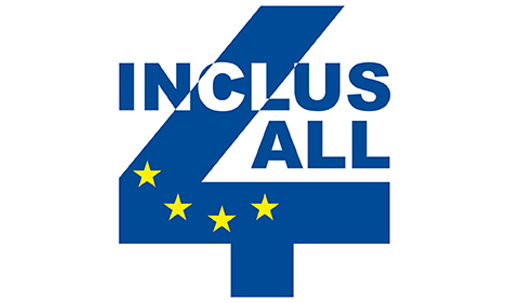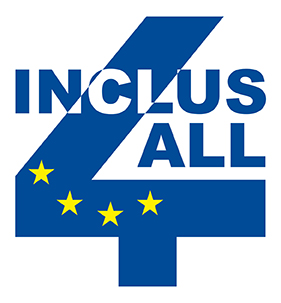1st Transnational Meeting
Erasmus + Project KA201
“Inclus 4 All”
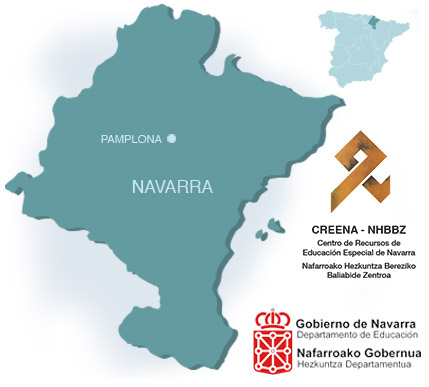
Place:
- Pamplona, Spain
Dates:
- March 6, 7 and 8, 2019
Host:
- CREENA
Meeting participants:
- ADE team of Creena-Pamplona
- Navarra – Educational Inclusion Bureau
- Modena Istituto Comprensivo 1
- Vilela Agrupamento Escolas
Pamplona - March 2019
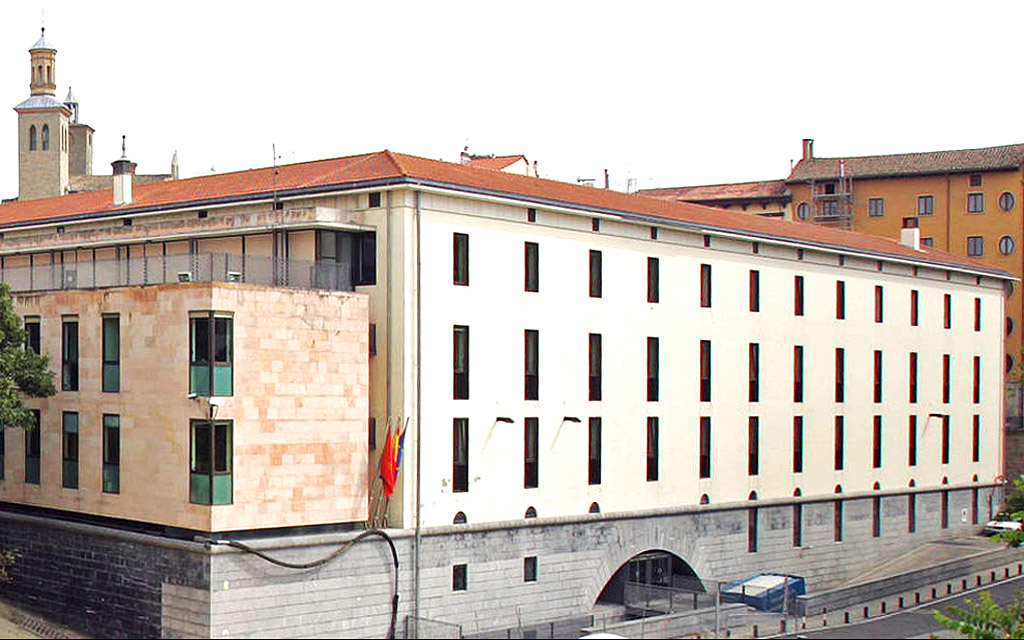
Wednesday March 6
The teams from Modena and Vilela arrive in Pamplona the day before, so that on Wednesday morning the initial meeting of the Project that marks the start of it can be held early in the morning.
The meeting takes place in the Department of Education of the Government of Navarra . The participants are:
- Director General of Education, Roberto Pérez Elorza
- Director of the Organization and Equal Opportunities Service, Andres Domblás García.
- CREENA Director, Josean Villanueva Liras.
- President of the School Council of Navarra, Aitor Etxarte Berezibar.
- Head of the European Projects Bureau, Elisa Echenique Echenique.
- Directors of educational centers in Navarra that participate in the Proeducar-Hezigarri program.
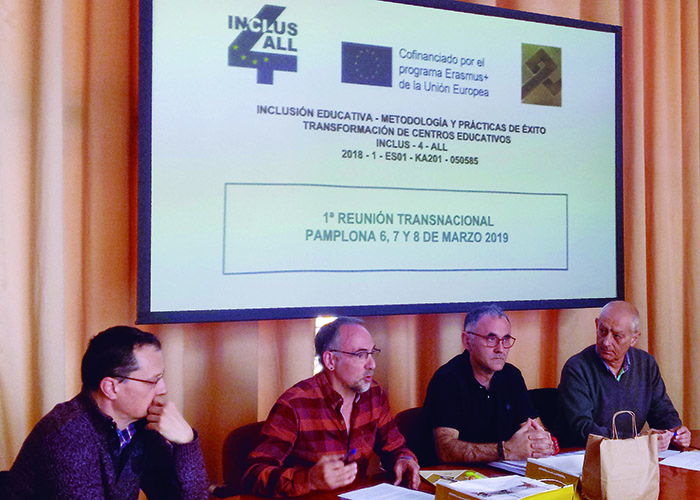
Reception at the Department of Education of the Government of Navarra
First of all,the partner teams from Italy and Portugal and all those who attend the opening session of the project are welcomed. Subsequently, the authorities present are given the turn and they express their satisfaction that this project is led by CREENA and point out the importance of Navarra initiating as the coordinating center of an Erasmus KA201, European project of Educational Innovation that involves the creation of intellectual products.
Finally, the coordinator of the project Marivi López Gimeno, exposes the process of formation of the consortium, the objectives that are pursued and the schedule of activities planned throughout the project until it ends in August 2021.
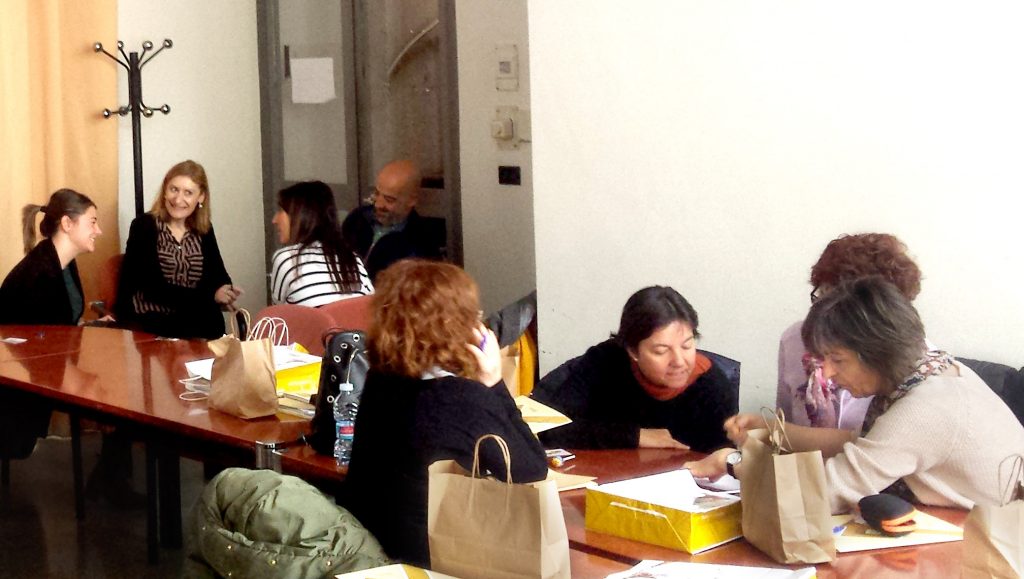
Cohesion activity of partner teams
Subsequently, a cohesion activity is carried out in heterogeneous groups to facilitate knowledge between the people who make up the partner teams and those attending the event. After which, each partner team shares their strengths and the main professional skills that they bring to the consortium as well as the specific functions of each partner team in the project.
To end the morning work shift, there is a dialogic gathering on the summary guide“The Nature of Learning” (OCDE)
In the afternoon, the people who coordinate each partner team meet to discuss specific issues of economic and administrative management. At the end of this, a guided tour of Pamplona is carried out with the partner teams so that they get to know the city, the culture and most representative customs of it..
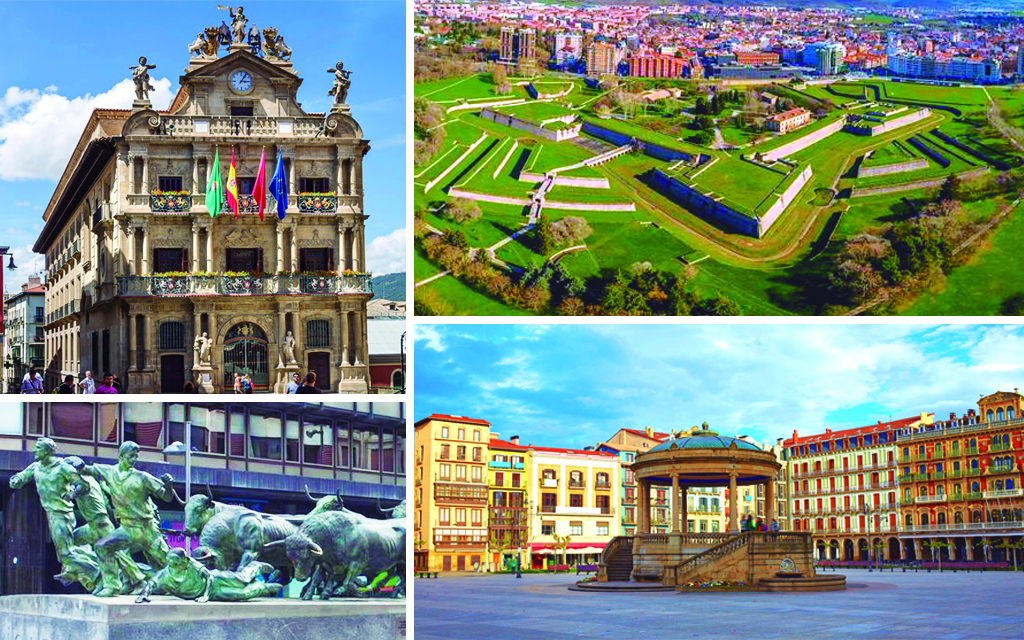
Sightseeing tour of the city of Pamplona
Thursday March 7
The second work day begins with a group cohesion activity. It is important that all the people who are going to work together for the next three years get to know each other and create bonds of friendship that facilitate the good work of the consortium. The commitment acquired for the creation of intellectual products is very important and a good work environment encourages belonging to the group and shared responsibility.
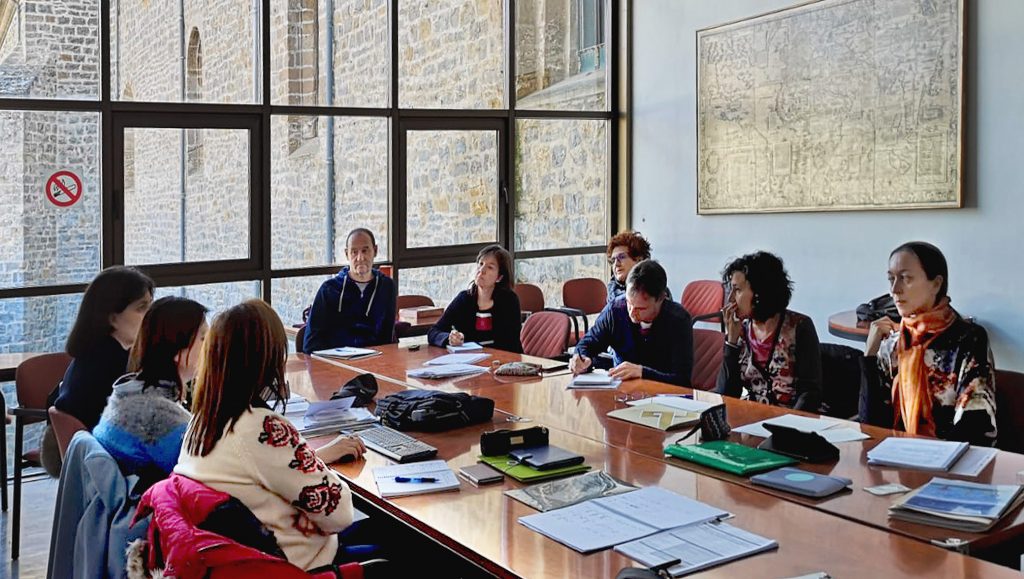
Partner teams of the Erasmus + Project KA201 "Inclus 4 All"
After the initial cohesion activity, a review of the state regulations on Inclusion and Attention to Diversity valid in each of the countries of the consortium is carried out. One of the things that most attracts our attention to the two teams in Spain, is to find out that in Italy there have been no Special Education centers for almost 50 years and that all students are enrolled in ordinary centers with the necessary support within the common reference classroom. We are also pleased to know that in Portugal, the new educational legislation has strongly opted for the inclusion of all students, eliminating the categories of students, and focusing on providing an inclusive response that takes as a model the Response to Intervention (RTI – for its acronym in English). This knowledge will serve as a basis for the development of our intellectual products that are firmly committed to inclusive attention to the educational diversity of all students. This meeting encourages the Spanish teams of the consortium to see a possible way of real transformation for the centers, at least in Navarra, since the administrative and economic management of Education has been transferred.
Subsequently, the self-diagnosis tool for centers developed by the Escola Nova 21. is analyzed in detail. Four core criteria are selected that the consortium considers to be directly linked to the objectives of the project. Adjustments and qualifications are made to them to achieve an effective tool that facilitates a good initial diagnosis in educational centers.
At the end of the work day, the expected impacts in the centers when implementing the project are defined and final achievement indicators are created for each criterion selected in the previous activity.
In Italy there have been no Special Education centers for almost 50 years and that all students are enrolled in ordinary centers with the necessary support within the common reference classroom. Also, in Portugal, the new educational legislation has strongly opted for the inclusion of all students, eliminating the categories of students, and focusing on providing an inclusive response that takes as a model the Response to Intervention (RTI – for its acronym in English).
Friday March 8
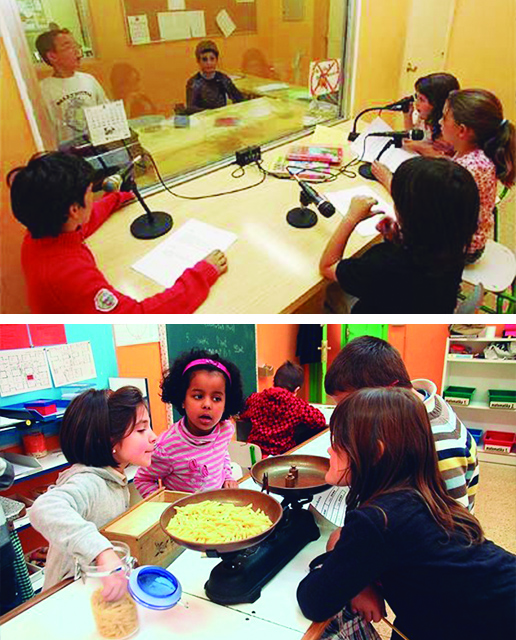
Amara Berri public school in Donostia-San Sebastián
The last day, we focused on visiting a leading educational center in Spain, the Amara-Berri public school. First thing in the morning, the trip is made from Pamplona to Donostia-San Sebastián to visit this innovative center that has more than 40 years of history in the use of groupings, methodologies and evaluation systems that favor attention to diversity.
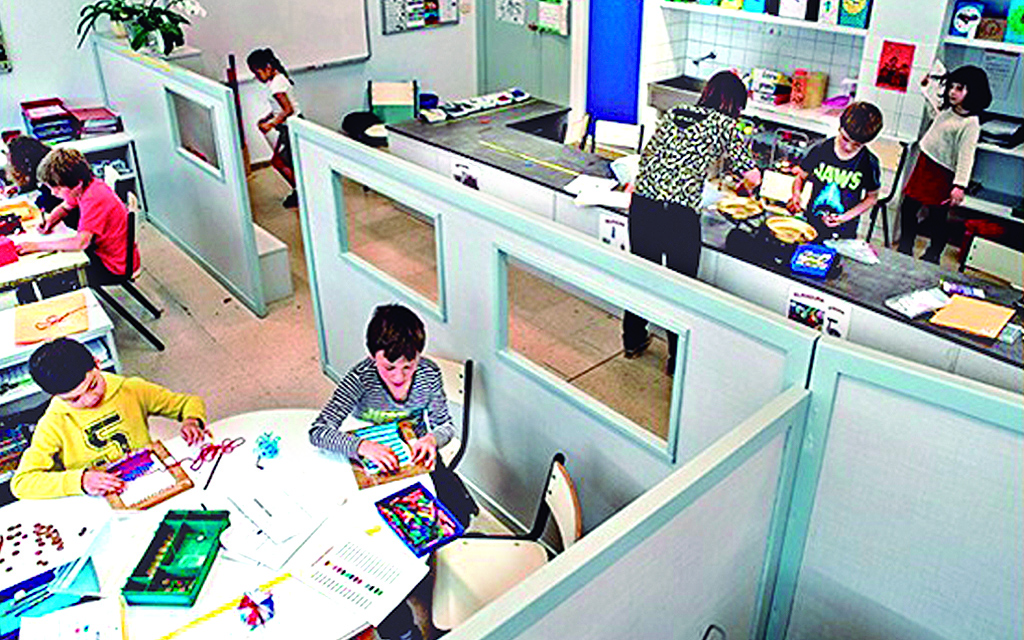
Amara Berri public school in Donostia-San Sebastián
We are welcomed by the director of the center, Emilio Martín González, together with the Amara-Berri system advisor Elena Guerrero González. After the initial greetings and introductions, the host couple exposes the pedagogical bases of the project and its historical journey until conforming the current system that includes 21 educational centers in the Basque Country and several extensions in other Autonomous Communities (CCAA).
Later, a visit is made around the entire educational center and its facilities to see how it works in situ.
Then a talk-colloquium is held to solve doubts, share opinions, make proposals, etc.
After the intense morning session, a meal is held with all the partners and a guided tour of Donostia-San Sebastián, which concludes the first transnational meeting of the project.
All the partners of the Erasmus + Program “Inclus 4 all” will continue working on our project and we will meet again in Modena in October 2019.
ERASMUS+ KA201
- CREENA - Calle Tajonar 14, 31006 Pamplona, Navarra
- +34 848 43 12 30
- mlopezgi@educacion.navarra.es
